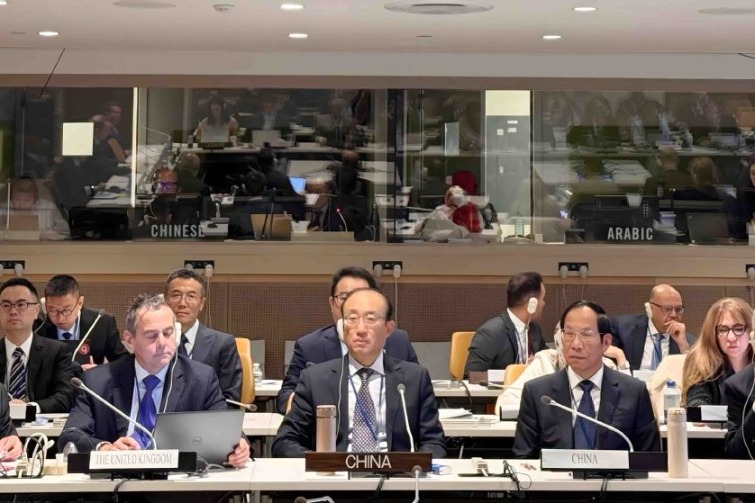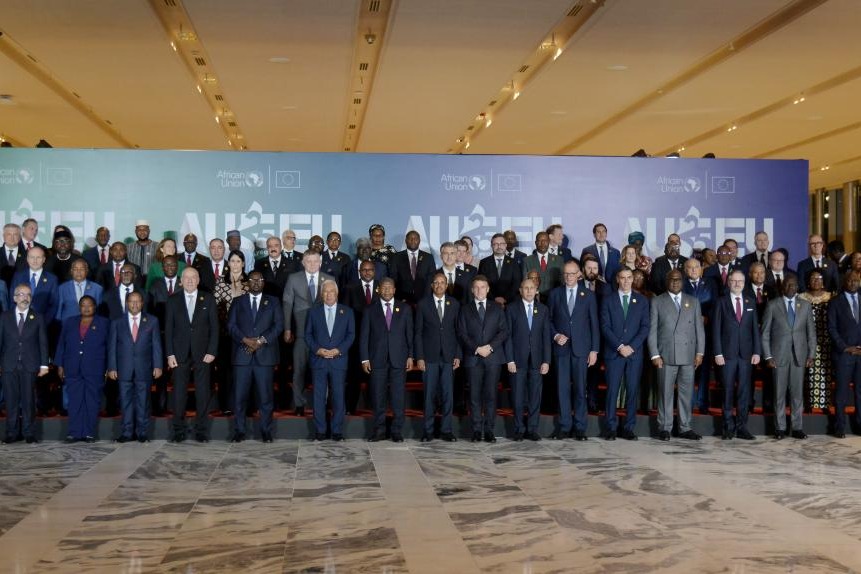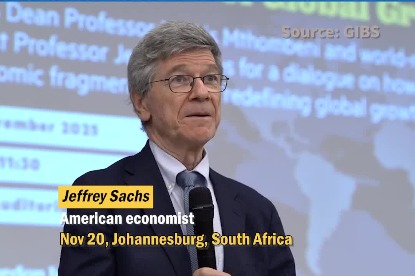Namibia eyes Chinese investments in key projects


Namibia is aiming to attract more Chinese investors into its transformative projects, positioning itself as a strategic cooperation hub for China in southern Africa.
"Namibia welcomes partners who share our vision to add value to our resources, develop renewable energy and boost agriculture for food security," said Tonata Itenge-Emvula, Namibia's new ambassador to China. "We believe in cooperation where both Namibia and China benefit."
China is Namibia's largest source of foreign direct investment, accounting for about 30 percent of total inflows, and is the country's second-largest trading partner after South Africa. More than 50 Chinese companies now operate in Namibia, including major investors behind the Swakop Uranium's Husab Mine and the Rossing Uranium Mine.
Itenge-Emvula said Namibia welcomes Chinese companies with the expertise, innovation and capital to support value addition, industrial growth and skills development. The country is committed to creating long-term trade and investment relationships rooted in mutual respect, shared economic goals and sustainable development, she said.
Namibia's investment priorities are aligned with areas in which China leads globally, she said, including renewable energy technologies, agricultural modernization and large-scale industrial processing.
Namibia is rapidly emerging as a frontier for green energy, with its southern coastline home to one of Africa's most advanced large-scale green hydrogen projects, she said. Rich wind and solar resources will enable the country to produce clean fuels, green ammonia and green industrial products for global markets, including China's fast-growing clean energy sector, she added.
Meanwhile, recent offshore oil discoveries estimated at over 3 billion barrels have positioned Namibia as a rising petroleum zone. Itenge-Emvula encouraged more Chinese investors to participate in refining and downstream oil and gas processing to help Namibia move beyond raw material export and build an industrial base that creates skills and employment.
Priority areas
Agriculture and food processing remain another priority area for deeper cooperation with China, she said. With increased investment in irrigation, cold chain infrastructure and modern agro-processing, Namibia aims to become a stable supplier of premium food products to Asia and support China's long-term food security efforts, she said.
"Food security is central to reducing poverty and strengthening livelihoods, and we see tremendous potential for cooperation with Chinese partners."
Namibia is also a key supplier of minerals essential to new energy industries. It is the world's third-largest producer of uranium and holds confirmed deposits of lithium, cobalt, nickel, manganese and copper.
Existing Chinese investments, such as uranium resources developed by China National Nuclear Corporation, have already strengthened cooperation in this sector. Itenge-Emvula invited more partners to support mineral processing and local value chain development rather than the export of unprocessed ore.
These opportunities are reinforced by Namibia's participation in the Forum on China-Africa Cooperation and the Belt and Road Initiative, which offer favorable financing, trade facilitation and technology exchange mechanisms for enterprises from both countries, she said.
Namibia's strategic location also provides access to the Southern African Development Community, a market of more than 360 million people with a combined GDP exceeding $750 billion, she said.
Namibia stands ready to facilitate business missions, tourism and investment-related travel to advance bilateral cooperation, she said.































